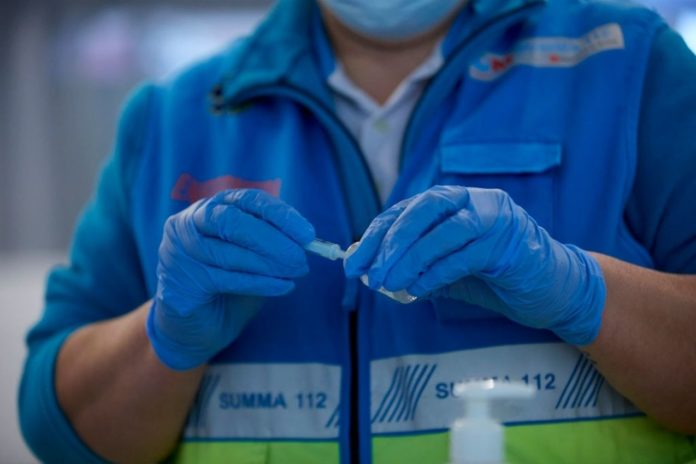The research, published in the Annals of Internal Medicine, studied people who are on immunosuppressive drugs for chronic inflammatory disorders such as inflammatory bowel disease and rheumatoid arthritis.
It has been difficult to assess whether the levels achieved by persons on immune suppressing medicines are high enough to protect them from severe COVID-19 since a minimum level of antibodies required for protection has not been established, according to the researchers. The Centers for Disease Control and Prevention (CDC) suggested that persons on immunosuppressive medications receive a third dose of the vaccination to boost their immune responses.
Nonetheless, the observation that COVID-19 vaccination generates a response in persons with weakened immune systems, albeit not as robust, is positive news for a population at high risk of serious illness.
“Some of our patients have been hesitant about getting vaccinated, which is unfortunate because they are at increased risk of having more severe cases of COVID-19 if they happen to get infected, compared to those not taking immune suppressing drugs,” said the study authors.
“Some of them are worried that vaccination might cause their disease to flare, but we haven’t seen that happen. Others don’t see the point of vaccination, because they think the drugs they’re taking to treat their autoimmune condition will prevent them from producing an immune response to the vaccine. What we found here is that the vast majority of immunocompromised patients with autoimmune diseases are able to mount antibody responses following COVID-19 vaccination. There’s clearly a benefit for this population.”
The study authors were concerned about how well the initial COVID-19 vaccines would work for their patients when covid vaccines were approved for emergency use in December 2020. Previous research has indicated that immunosuppressive medicines can reduce people’s reactions to other vaccines, such as those used to prevent influenza and pneumococcal disease.
The study’s authors set out to find out how well persons using immunosuppressive medicines respond to COVID-19 vaccination.
For comparison, the team gathered a participant group of 133 sick and 53 healthy people. Each of the patients was using at least one immune-suppressing medicine for a variety of conditions including inflammatory bowel disease, rheumatoid arthritis, spondyloarthritis, lupus, and multiple sclerosis.
Participants gave blood samples two weeks before and three weeks after getting the first dose of the Pfizer or Moderna vaccine, respectively. The researchers counted the number of antibody-producing cells in each participant’s blood samples and evaluated their antibody levels. Except for three patients, who had their prescriptions interrupted within one week following immunisation, all patients stayed on their prescribed treatment regimens.
Antibodies against the virus that causes COVID-19 were developed by all healthy participants and 88.7 percent of immunocompromised subjects. However, antibody levels and the number of antibody-producing cells were one-third as high in the immunocompromised group as in the healthy group.
“Nobody knows what minimum level of antibodies is needed for protection,” Ellebedy said.
“We just don’t know whether people who had low but detectable levels of antibodies are protected or not. It’s that uncertainty that justifies the need for a third dose, especially since we have these highly infectious variants that are capable of causing breakthrough infections even among healthy people.”
Two types of drugs resulted in abnormally weak immunological responses. Only 65 percent of those taking glucocorticoids and 60 percent of people taking B cell depleting treatments had detectable antibody responses. People who used antimetabolites such methotrexate, TNF inhibitors, or JAK inhibitors, on the other hand, did not have significantly poorer immune responses than those who did not.
Alfred Kim, Ellebedy, and colleagues are getting ready to follow the same group of participants as they get their third doses. The study authors said they would feel better about how well the vaccination protects their patients if a third dosage permits persons on immunosuppressants to achieve the antibody levels found in healthy people after a second dose.
“Receiving this additional dose may help mitigate this loss of response. It’s really important for people who are immunocompromised to receive this dose to maximize their ability to protect themselves from SARS-CoV-2” said the researchers.
